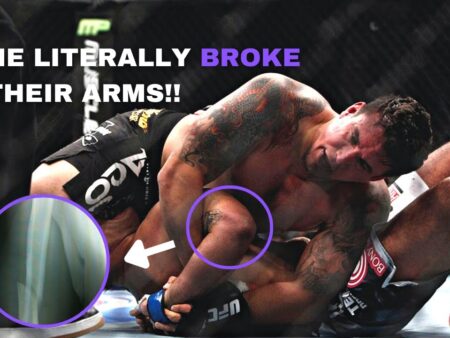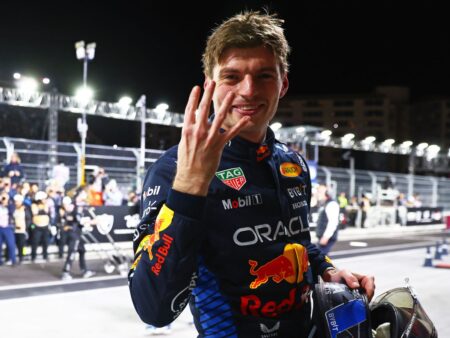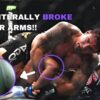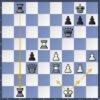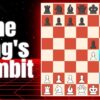The world of mixed martial arts thrives on its unpredictability, its raw emotion, and the sudden, often brutal, conclusions to its contests. Yet, sometimes, the finality of a fight is less about a clear-cut victory and more about a split-second decision from the third man in the cage. Such was the case at UFC Nashville, where Derrick Lewis secured a lightning-fast knockout against the previously undefeated Tallison Teixeira, but the immediate aftermath was overshadowed by a swirling controversy:
Was the stoppage truly an early end, or was it, as one prominent analyst suggested, an accidental TKO, a mere byproduct of chaos?
The Flashpoint: Lewis vs. Teixeira
The main event promised fireworks, and it delivered them in a mere 35 seconds. Derrick “The Black Beast” Lewis, a perennial fan favorite known for his devastating power, wasted no time engaging Tallison Teixeira. As Lewis unleashed a flurry of strikes, Teixeira found himself in a precarious position, grappling with the onslaught. In a critical moment, he resorted to an illegal maneuver: blatantly grabbing the cage to prevent himself from falling and to regain his footing.
It was at this juncture that referee Jason Herzog stepped in, halting the action. What followed was Lewis celebrating, the crowd reacting, and Teixeira protesting. The official call: TKO for Derrick Lewis.
The “Accidental” Stoppage Theory: Chael Sonnen`s Perspective
Enter Chael Sonnen, the outspoken and often provocative former UFC contender, now a keen analyst. On ESPN’s Good Guy / Bad Guy show, Sonnen presented a theory that sent ripples through the MMA community. He acknowledged Teixeira`s clear rule infraction – not one, but two instances of cage-grabbing – which undeniably altered his position and allowed him to stand up.
Sonnen posited that Herzog’s intention might not have been to end the fight outright. Instead, he theorized, the referee was attempting to pause the contest to issue a disciplinary one-point deduction for the fence grab. “My own conspiracy,” Sonnen mused, “but I believe he was stopping the action to offer disciplinary one point for the fence grab.” He painted a picture of a chaotic scene: Lewis celebrating prematurely, the crowd erupting, and Herzog himself getting inadvertently bumped. In the ensuing pandemonium, what might have been intended as a temporary halt became solidified as a TKO.
Sonnen even recounted a personal anecdote from his wrestling days, where a gesture intended for one outcome (a five-point throw) was misinterpreted as another (a match-ending “touch fall”) due to the chaotic environment. It’s a compelling, if slightly conspiratorial, argument that highlights the razor-thin margins and the potential for miscommunication in high-octane sporting events.
The Pragmatist`s View: Daniel Cormier`s Counter-Argument
Sharing the desk with Sonnen was Daniel Cormier, an Olympic wrestler, former two-division UFC champion, and a commentator who was cageside for the event. Cormier offered a more grounded, pragmatic counter-narrative. He confirmed that he spoke with Herzog shortly after the fight, and the referee himself asked Cormier if he thought the stoppage was “early.” Cormier’s answer was a resounding “No.”
Cormier dissected the situation from the referee`s challenging perspective. His core argument revolved around the impossibility of resetting the action during a finishing sequence. “You can’t do that in a finishing sequence,” Cormier stated emphatically. The logic is sound: if a fighter is actively being finished and then commits an illegal act to escape, pausing the fight to deduct a point and reset their position fundamentally changes the dynamic. It offers the escaping fighter a lifeline they didn`t earn. Teixeira, Cormier argued, would not have gotten up without sticking his fingers into the fence. Therefore, the only logical and safe action was to stop the fight.
From Cormier’s viewpoint, the referee was not confused, but rather made a difficult, yet correct, decision under immense pressure. The illegal grab directly prevented a clean finish, and the consequence, by rule and practicality, was the end of the bout.
The Referee`s Impossible Task
The debate surrounding the Lewis-Teixeira stoppage encapsulates the unenviable position of a mixed martial arts referee. They are tasked with enforcing complex rules, ensuring fighter safety, and making split-second judgments in a sport that moves at a brutal pace. Jason Herzog, widely regarded as one of the best officials in the business, found himself at the center of this storm, demonstrating that even the most experienced referees face scrutiny and differing interpretations of their actions.
Was it an accidental TKO stemming from a chaotic sequence, as Sonnen suggests, a testament to the unforeseen pitfalls of live combat sports? Or was it a necessary, albeit unpopular, intervention to enforce the rules and protect a fighter whose illegal action directly prolonged the assault, as Cormier contends? Ultimately, the official record stands: a TKO victory for Derrick Lewis. Yet, the conversation it sparked—about intent, interpretation, and the immense pressure on those who police the cage—will undoubtedly continue, adding another compelling layer to the ever-evolving narrative of professional combat sports.

